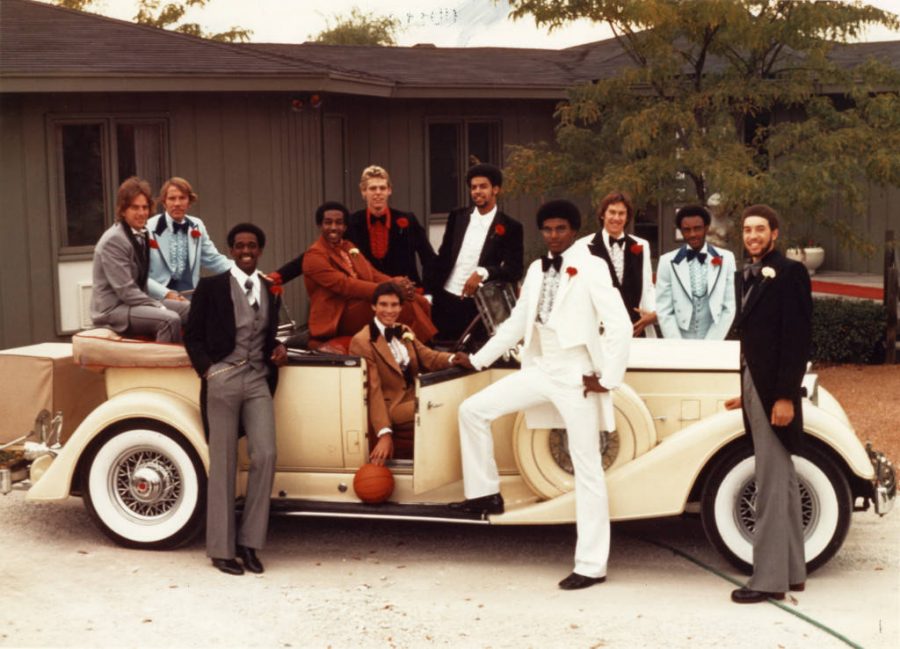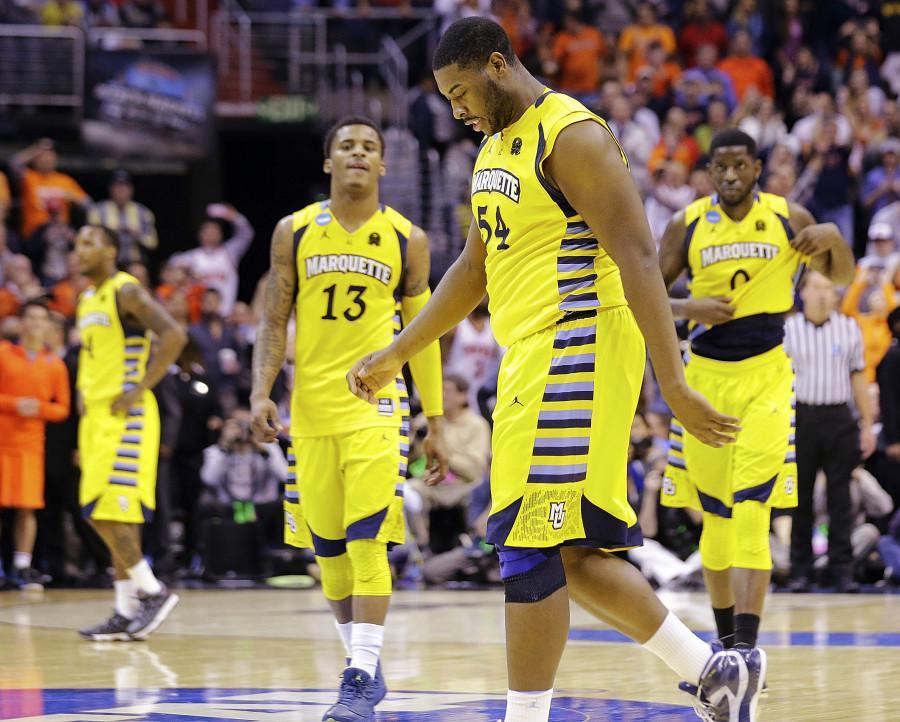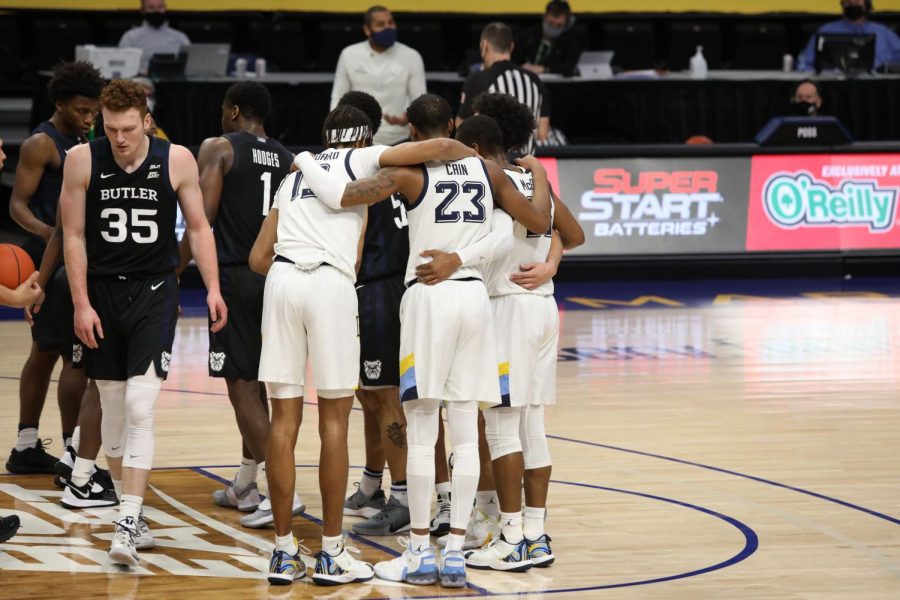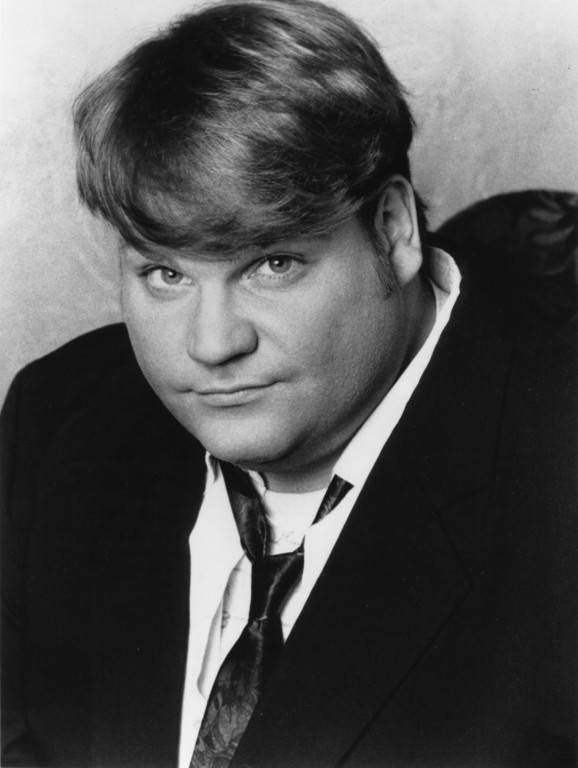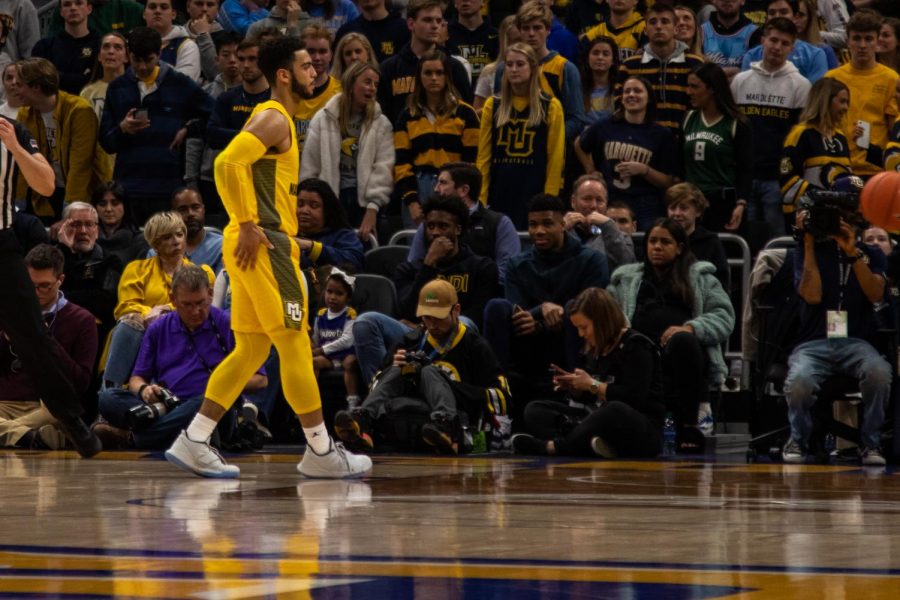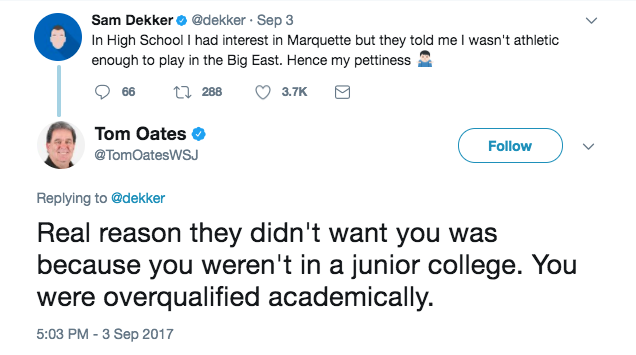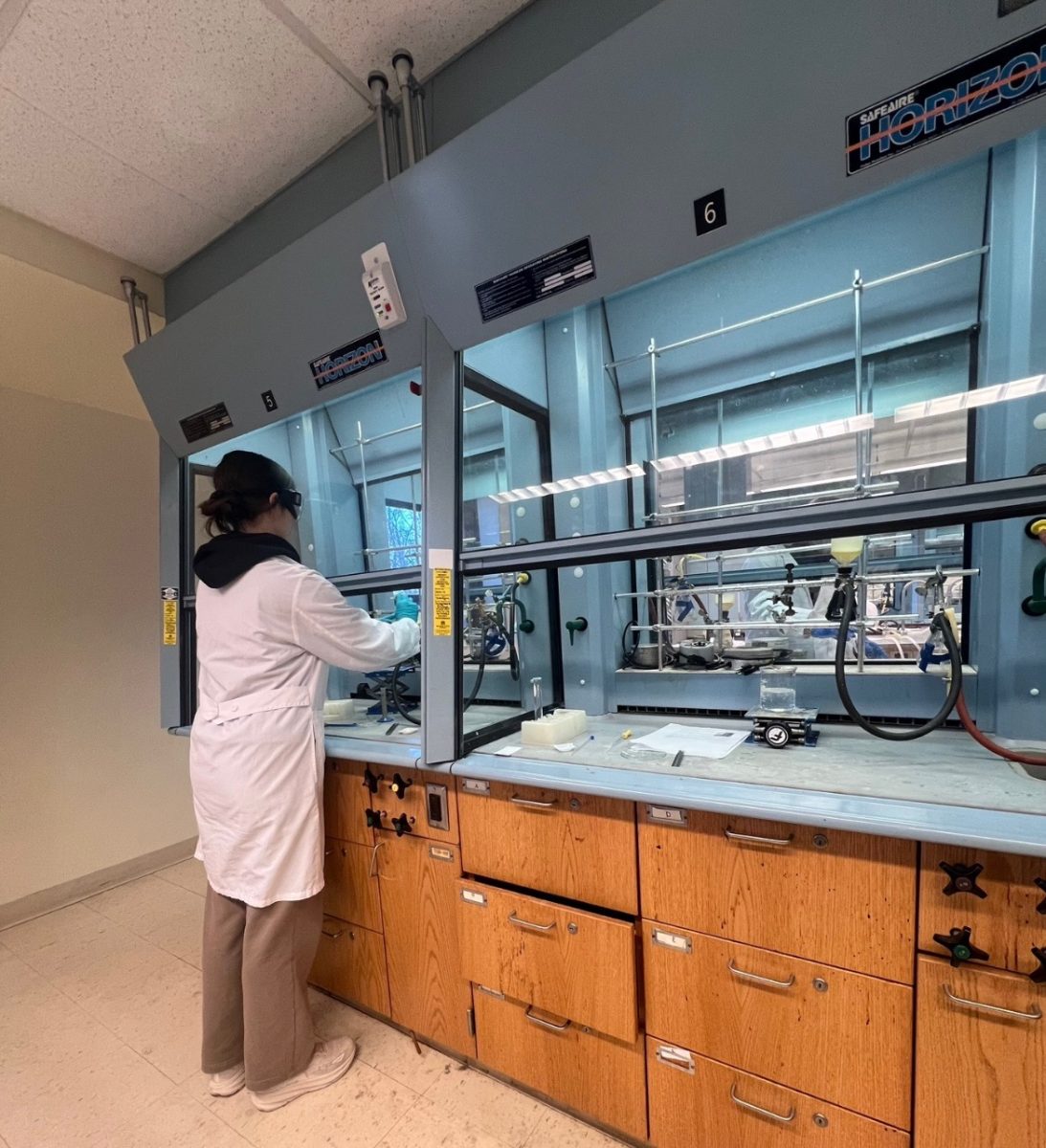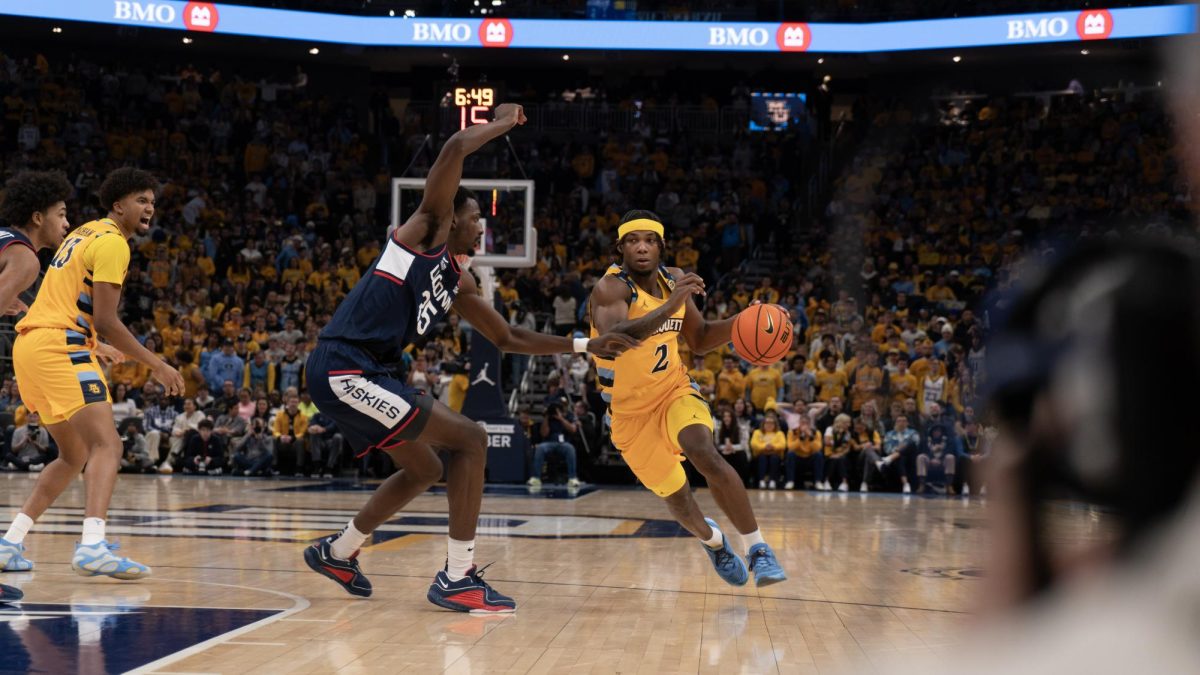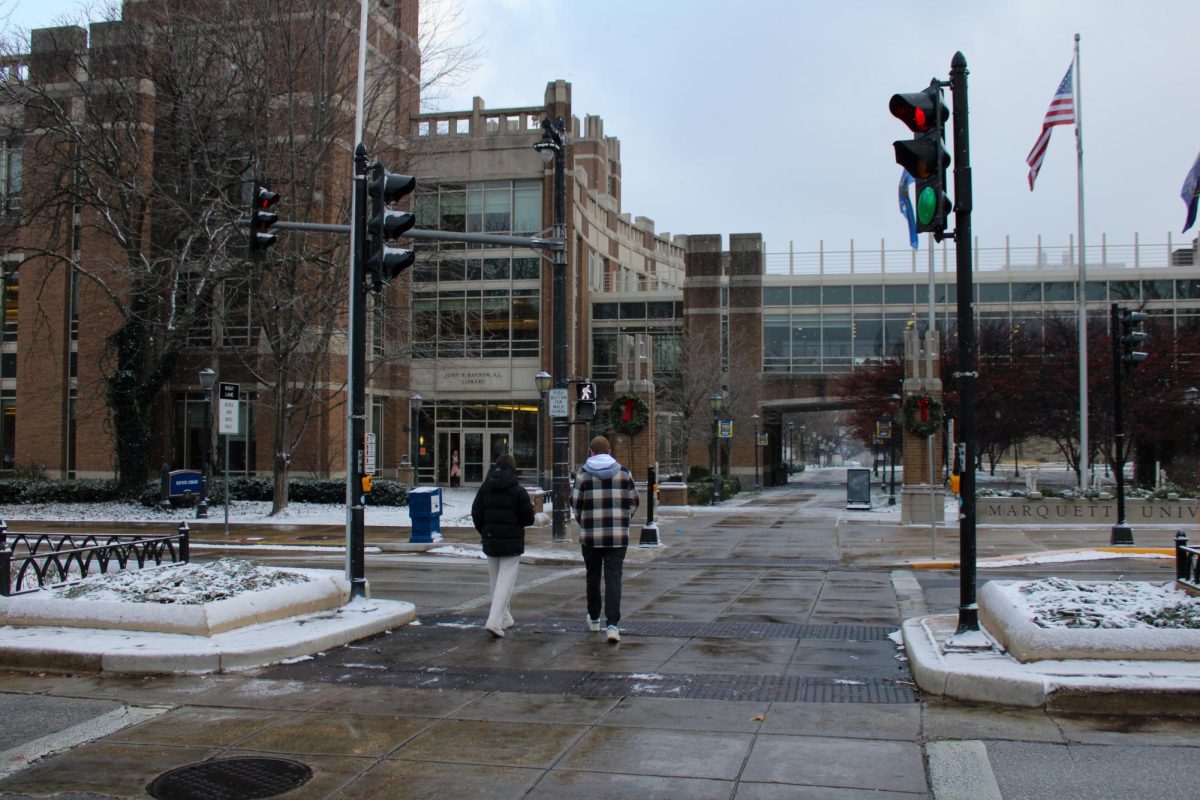 There was a little kid from Tomball, Tex., who grew from a crack in concrete. He was abandoned when he was 13 years old.
There was a little kid from Tomball, Tex., who grew from a crack in concrete. He was abandoned when he was 13 years old.
He was lost. He was found. He was raised by adoptive parents. He survived the streets. He graduated high school. He became a junior college All-American. He finally found his way to Marquette, where he was loved and accepted by the family he never truly had. He succeeded when no one thought he could.
Like some sort of modern Cinderella, the little kid from Tomball made it out alive. And he smiled.
By now, former Marquette forward Jimmy Butler’s story is well documented. The lesson to be learned is this: It’s a tale that should have never been.
And yet there he was on June 23rd, a living paradox: defiant, stubborn and willing to fight until the bitter end, listening to NBA Commissioner David Stern call his name on draft night; the 30th overall pick, the last selection of the first round to the Chicago Bulls.
It was a fairytale ending to a fairytale life. Except the glass slipper was traded for a bouncing ball and a guaranteed contract.
As a Chicagoan who bleeds Bulls crimson red — though by anatomical coincidence, I suppose most other people do too — this was an instant frozen in time. I’ve covered Jimmy Butler for three years. I’ve sat next to him in class. I’ve interviewed him. More than any other sports moment in my life, this one felt the most personal, like by some miracle of association I helped push him toward his goal.
I wanted to cry with him. I wanted to run to Texas and give him a big hug. I felt purely and utterly happy, which, I imagine, is how Eddy Curry feels whenever McDonald’s brings back the McRib.
And if anyone deserves to succeed, it’s Butler.
He’s always been this underdog story, even before his incredible, made-for-the-big-screen tale was revealed in the early parts of the summer. Undersized, outgunned, overwhelmed, Butler always managed to persevere.
There he was, this scrappy, wiry silhouette of elbows and energy, blue and gold jersey hanging like a sad, droopy smile on his body, throwing himself all over the court. Not a player with heaps of natural gifts, Butler’s greatest quality was his ability to consistently, persistently, be there.
Where?
There.
Wherever he needed to be.
He’s what you call a fill-in-the-blanks player. If a teammate was getting killed on defense, Jimmy had him covered. If you needed rebounding, Jimmy snagged some boards. If you needed a clutch shot with time winding down, Jimmy was your guy.
He never did what was best for him. He did what was necessary for everyone.
But perhaps his biggest contribution to a team that reached the Sweet 16 last year was as a muse. Butler was not only the team’s best player, but its inspiration. He was the passion, the heart and soul. His teammates looked at him and said, “If he can do it, why not us?”
And so they did. And the little kid from Tomball smiled.
Now Butler’s latest chapter in life is ready to write itself, this time as a Chicago Bull. And maybe this will be the end to the Cinderella story, the final page of the tall tale that should have been very short. Perhaps he’ll come and go quietly, just fade into obscurity like so many others.
Or maybe the little kid from Tomball, who Marquette watched grow into a man, is only beginning his journey. Maybe Jimmy Butler has much more smiling to do. And when he does, I’ll be the first to smile back.


